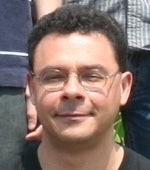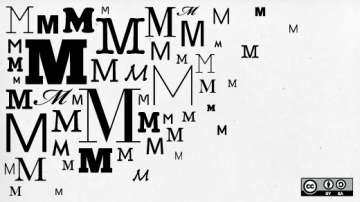
Luis Ibáñez works as Senior Software Engineer at Google Inc in Chicago. Opinions expressed in this site are his own.You can find him in github at: http://www.github.com/luisibanezand in twitter at: http://www.twitter.com/luisibanezHe previously worked as a Technical Leader at Kitware Inc., and Director of Open Source Community Development at the Open Source EHR Agent (OSEHRA). At Kitware he was closely involved in the development of open source software for medical imaging applications, in particular, working with the Insight Toolkit (ITK).Luis is a strong supporter of Open Access, and one of the editors of the Insight Journal, an OA Journal that enforces the verification of reproducibility. In collaboration with other instructors, Luis taught a course on Open Source Software Practices at RPI between 2007 and 2013, and also at the State University of New York at Albany between 2011 and 2014.Luis Ibáñez received a B.S. in Physics from the Universidad Industrial de Santander (Bucaramanga, Colombia) in 1989 and a M.S. in Optics from the same university in 1994. He received a D.E.A and Ph.D. degrees from the Universite de Rennes I (Rennes, France) in 1995 and 2000, respectively. In 1999, Luis Ibáñez joined the Division of Neurosurgery of the University of North Carolina at Chapel Hill and participated as a member of the MIDAG and CADDLab groups. His work at UNC was related to the development of algorithms for 2 and 3D registration applied to image guided surgery. He also participated as developer of the INSIGHT Registration and Segmentation Toolkit sponsored by the National Library of Medicine. Luis Ibáñez joined Kitware, Inc. in February 2002 where he was one of the main developers of the Insight Toolkit (ITK) coordinating its maintenance with other developers and the user community; he is also one of the main developers of the Image Guided Surgery Toolkit (IGSTK) and participated in crafting the operational principles of the Insight Journal. Luis Ibáñez is a strong supporter of Open Access, and the verification of reproducibility in scientific publications and is a regular speaker in ITK training courses, and in events disseminating the principles of Open Source. In August 2014, Luis joined Google Inc as Software Engineer, to work with the corporate engineering team in New York city.



Authored Comments
Joshua
Thanks for this great article.
I appreciate the pragmatic approach to better balancing the demographics of open source communities.
It is worth emphasizing the point that making a community more welcoming for women, also makes it more welcoming for everyone. It is the consequence of adopting an inclusive mindset and living by it.
Software projects are akin to cities, and their dynamics are better understood in terms of city planning and city development. Under that light, it is clearer why demographic diversity is a requirement for cultivating a healthy open source community.
When looking for communities to join, one should look at the diversity of their members. Just the way we look at data when moving to a new city or a neighborhood. In that regard, it will be great if communities start voluntarily publishing their demographic statistics in terms of gender, age, and ethnicity, just as some top technology companies have recently started to do.
Luis
Thanks to Daniel Shiffman, for pointing out that now the source code in the book is under the MIT License (no longer the GPL license). The text of the article above has been corrected accordingly.
...and... of course...
Thanks to Daniel for so openly sharing his knowledge in this book !